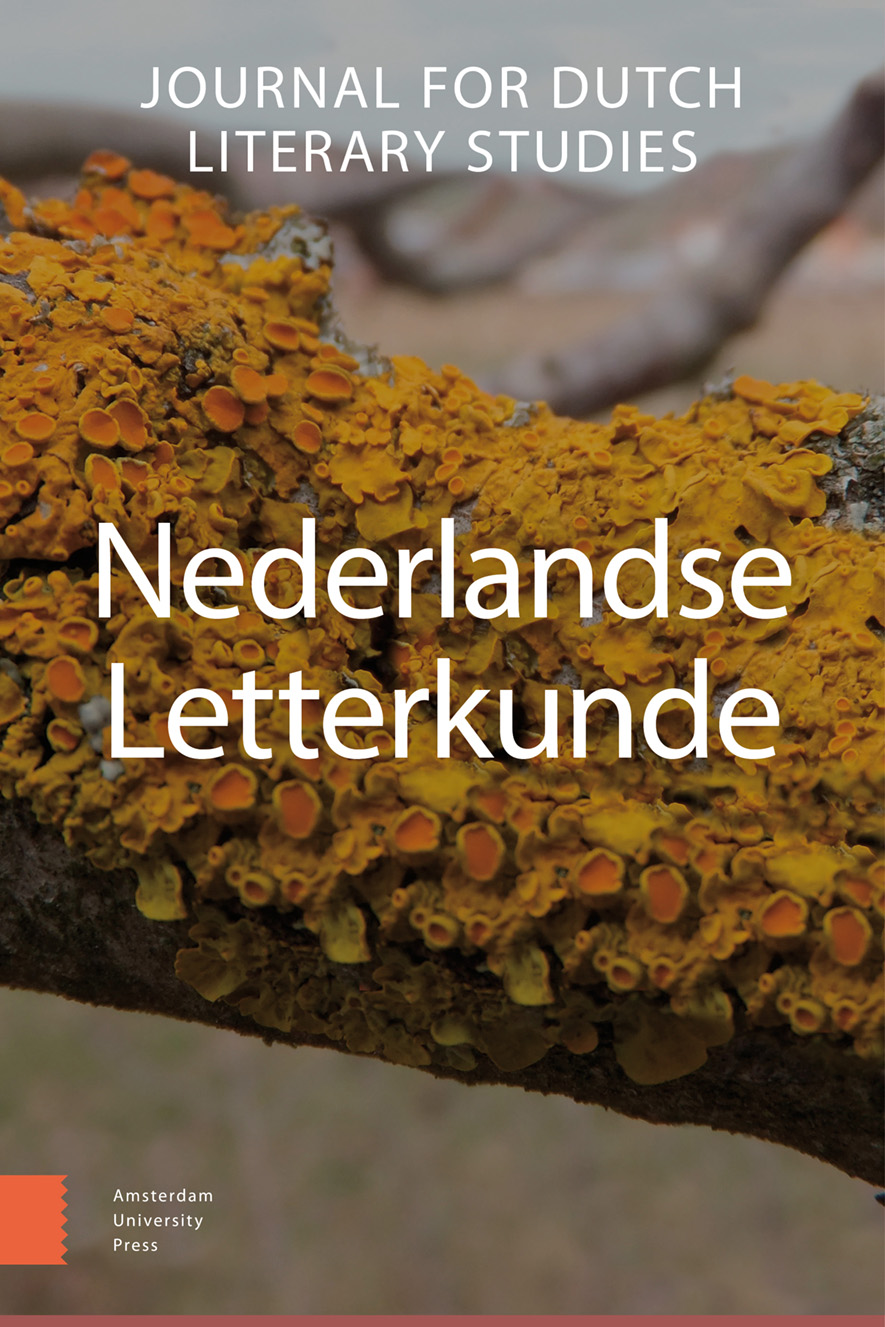-
oa ‘Schryver van’ of burgerman? - Het afficheren van cultureel en sociaal kapitaal in Vlaamse negentiende-eeuwse romans
- Amsterdam University Press
- Source: Nederlandse Letterkunde, Volume 15, Issue 1, Jan 2010, p. 29 - 52
Abstract
In this contribution I examine how Flemish nineteenth-century men of letters, and more specifically: historical novelists, presented themselves on the first textual ‘thresholds’ that readers encounter when they open a book, namely the title page and the dedication. These peritexts not only show how the novelists presented themselves to the outside world, i.e., the profile they wanted to create for themselves; they also provide insights into the social status and economic situation of the men of letters, since underlying motives frequently played a significant role in this respect. Moreover, an analysis of the aspect of self-presentation yields interesting data concerning the process by which the literary field became autonomous with respect to the field of the power. The results of this analysis, which takes the authors’ self-presentation to the reading public as its central perspective, corroborate the existing view that the literary field in Flanders only started to become autonomous with the Van Nu en Straks-movement. During the period between the 1830s and the 1880s, the relationship between authors on the one hand and political, social and ecclesiastical powers on the other was such that artistic freedom and autonomy were luxuries a Flemish author could hardly afford.


